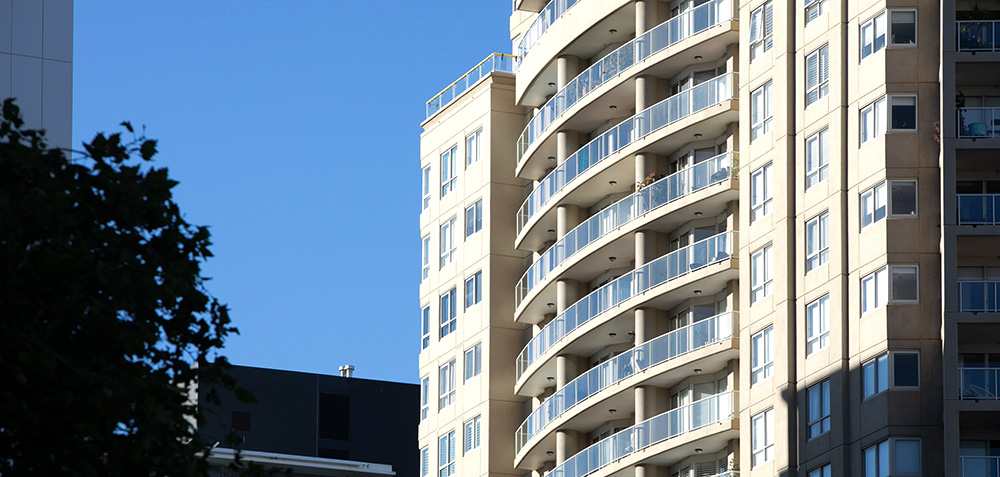 By
Cancer Council NSW
By
Cancer Council NSW

Summary
In 2021, a young family in an inner Sydney suburb faced exposure to second hand smoke when new neighbours began smoking on their balcony, with smoke drifting into the family’s apartment and impacting their health. They attempted to resolve the problem by directly negotiating with the neighbours. They also proposed adoption of a smoking by-law at the Annual General Meeting (AGM) but the proposal was not supported by some other residents or the strata manager. They sought help from a strata lawyer, documented the issue meticulously with diaries, photos, and medical records, and finally turned to the NSW Civil and Administrative Tribunal (NCAT) for resolution after a failed mediation session.
Within months, the conflict intensified with additional affidavits and requests from the neighbours’ legal counsel for medical evidence of the impact the smoke had on one of the family members health. However, prior to the Tribunal hearing, the neighbours agreed to stop smoking on their balcony, resulting in legally binding consent orders with substantial fines for non-compliance. While the orders addressed balcony smoking, challenges remained, including unsuccessful efforts to pass a smoking by-law at the AGM. The family plans further action in 2025, but their experience highlights the role of legal support and detailed documentation in addressing smoke drift issues.
In 2021, a young family moved into an apartment within a medium-sized complex. The apartment featured a spacious enclosed balcony, ideal for remote work. However, after 18 months, new neighbours began smoking cigarettes and burning incense on their balcony, causing smoke to drift into the family’s apartment. This was particularly troubling because family members had asthma.
Upon reviewing their purchase documents, the family discovered that there was no smoke-free by-law or adoption of the NSW Government’s 2017 model smoking by-laws. Without the specific smoking by-law in place, it was increasingly difficult to manage the issue.
Several attempts to resolve the issue directly with the neighbours were unsuccessful. The neighbours admitted to smoking but suggested that the affected family “close their windows,” claiming they were not breaking any laws. To address the problem, the family proposed a smoking by-law at the Annual General Meeting (AGM). However, they faced resistance from other residents who also smoked, and the Strata Manager was not supportive of the proposed change. It’s possible that there may have been a mistaken belief that the smoke free by-law would restrict the use of BBQs on balconies.
As the smoke drift worsened, affecting the home office, living room, and child’s bedroom multiple times a day, the family found the Pittman v Newport precedent and sought advice from a strata lawyer. They thoroughly documented the smoke drift with a detailed diary, photos, and videos showing smoke entering their apartment from the neighbours’ balcony.
Within months, the family arranged a mediation session, which failed to resolve the issue and only made matters worse. Frustrated by the lack of progress and the health impacts of smoke exposure, the family, with their strata lawyer’s support, decided to pursue legal action through the NSW Civil and Administrative Tribunal (NCAT).
Before the NCAT hearing, the neighbours denied that their smoke was drifting and affecting the family engaged their own legal counsel. After a few more months, the conflict had intensified and the family received a request from the neighbours legal counsel to review medical records. This request was to examine the evidence that the smoke was aggravating asthma. During this time, the family reported worsened health with severe asthma.
However, prior to the scheduled Tribunal hearing date, the neighbours acknowledged the nuisance caused by the smoke drift and agreed to stop smoking and burning incense on their balcony. Terms were negotiated, with the strata lawyer’s assistance, to ensure the smoke no longer affected the family’s apartment. The agreed terms included:
- The neighbours must not smoke tobacco products or burn incense on their balcony.
- The neighbours must not allow others to smoke tobacco or burn incense on their balcony.
Incense was included in the orders due to its smoke also creating issues in this case. The consent orders were legally binding, with fines of $5,500 for the first violation and up to $11,000 for subsequent breaches.
- The family faced resistance from neighbours and difficulties navigating the legal process. There were attempts to discredit the complainants with additional affidavits from other residents in the building denying the smoke drift and requests for medical evidence of the impacts complicating their experience.
- Although legally binding, the orders were not recorded in case law due to the neighbours agreeing to the terms prior to the Tribunal hearing, limiting their precedent value.
- The neighbours have stopped smoking and burning incense on their balcony. However, the family’s attempts to implement a smoking by-law at the AGM were unsuccessful. They plan to pursue further action at the next AGM in 2025.
- Time and cost of engaging specialist legal counsel.
- The family’s determination and legal support from a strata lawyer helped achieve resolution.
- Early legal consultation and meticulous documentation of evidence – including diary entries of the date, time, and location in the house where smoke drift was experienced, photos and videos of the smoke entering their apartment, and medical records showing the impact to their health – supported their case.
For information relating to Smoke Free Apartments and implementing your own smoke free by-law see our webpage Smoke Free Apartments and our Toolkit.
Contact us at tacklingtobacco@nswcc.org.au for further information.